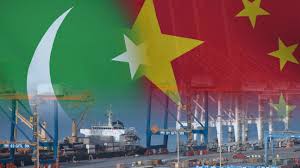CPEC: Turkmenistan set to become first Central Asian nation to secure access to Gwadar port

Islamabad: In a significant development, Turkmenistan is set to become the first Central Asian nation to secure access to Gwadar port, a major component of the China-Pakistan Economic Corridor (CPEC).
This move not only strengthens regional connectivity but also positions Pakistan as a critical trade and transit hub, linking Central Asia with global markets.
At the heart of this agreement is Gwadar port, a cornerstone of CPEC and a flagship project within China’s Belt and Road Initiative (BRI). With over US $60 billion pledged by Beijing for infrastructure and energy projects in Pakistan, the initiative is poised to enhance Pakistan’s economic capabilities by connecting China to the Arabian Sea through an extensive network of roads, railways, and pipelines.

An official statement said, the two nations are close to finalizing an agreement that would allow Turkmenistan access to Gwadar. “The government has constituted a committee to examine the draft agreement between Gwadar Port and Turkmenbashi Port under CPEC,” reads the official statement.
This potential deal marks a deepening of economic and strategic ties between Pakistan and Turkmenistan, who are already collaborating on projects such as the Turkmenistan-Afghanistan-Pakistan-India (TAPI) gas pipeline, along with plans for rail and fiber connectivity to bridge South and Central Asia.
For Pakistan, the timing is crucial. As the country grapples with financial challenges, leveraging its geopolitical position has become a key strategy. By facilitating trade and transit for the landlocked Central Asian republics, Pakistan hopes to revitalize its economy and boost its stature as a regional player in global commerce.
This evolving partnership reflects broader shifts in regional alliances, as both Pakistan and Turkmenistan seek to capitalize on China’s infrastructure investments and enhance their respective economic futures. As CPEC continues to expand, Gwadar’s role as a gateway for Central Asia could significantly influence trade dynamics across the region.





